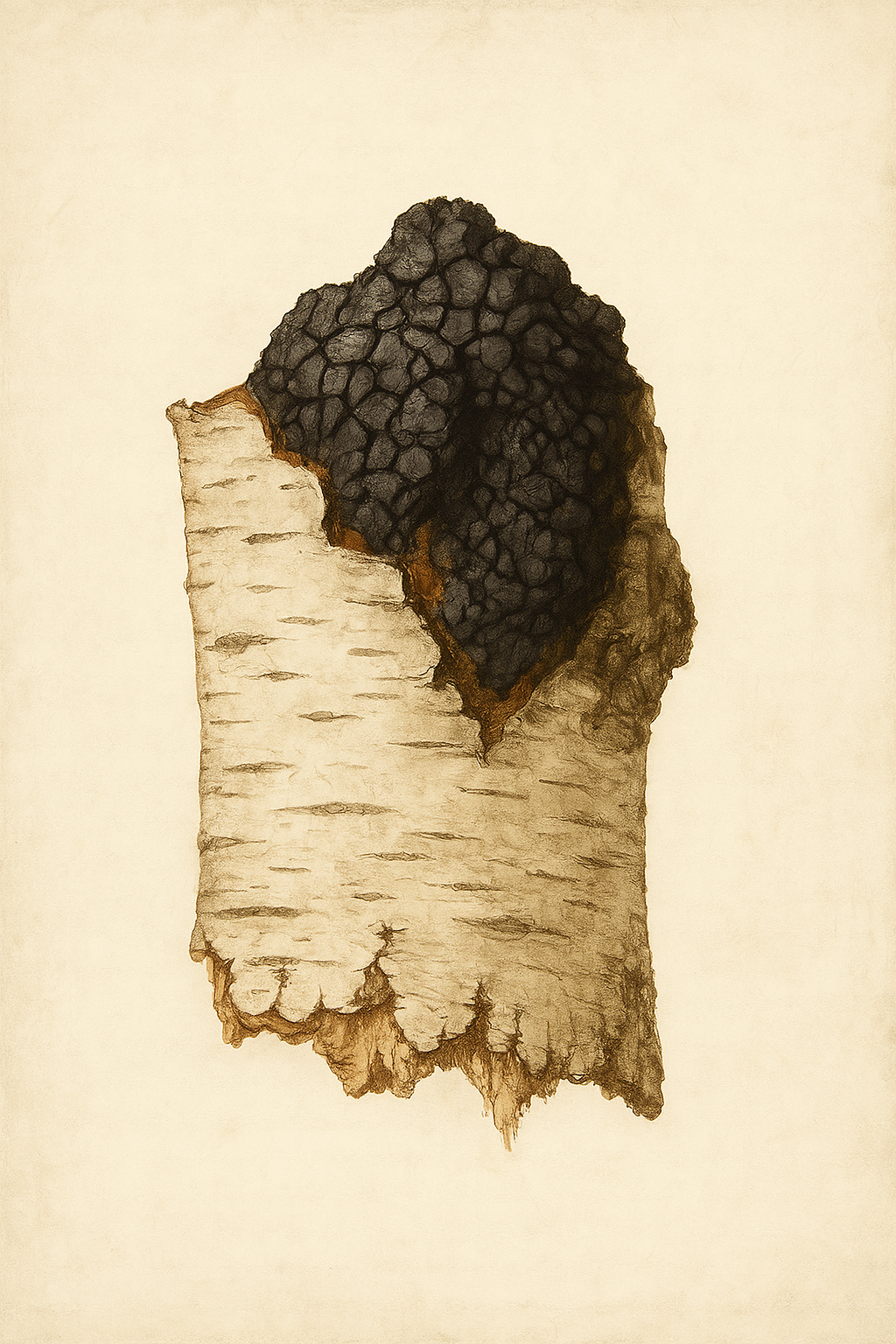Chaga
author: Ivy Grzybowski
category: Adaptogens
Chaga (Inonotus obliquus) is a strange, charcoal-like fungus that grows primarily on birch trees in cold northern forests. Although it looks more like burnt wood than a mushroom, Chaga has been treasured for centuries as a powerful tonic. In Siberian and Russian folk medicine, it was brewed into a tea believed to strengthen the body, soothe stomach ailments, and boost immunity. Indigenous peoples of North America also used Chaga for its calming and restorative properties. Rich in antioxidants, especially melanin and polyphenols, Chaga is thought to protect cells from oxidative stress and support overall vitality. During the 20th century, Chaga gained attention in Russia when researchers studied it for its potential in oncology, inspired by anecdotal stories of rural populations with low cancer rates. Its adaptogenic qualities are tied to its ability to reduce inflammation and help the body find balance during stress. Today, Chaga is widely consumed as teas, tinctures, and powdered extracts. Its earthy, slightly bitter flavor connects drinkers to centuries of tradition. Beyond wellness, Chaga remains a symbol of endurance through harsh climates and the human ability to find resilience in the most unlikely corners of nature.
Created: 2025-09-14 23:19:09 | Updated: 2025-09-14 23:19:09
← Back to all adaptogens
